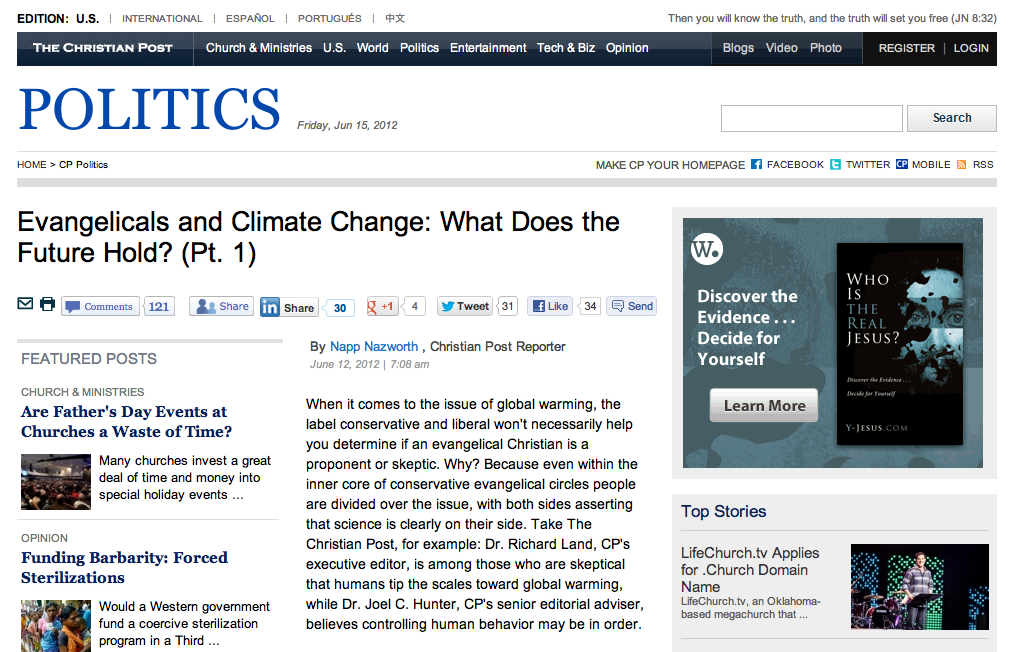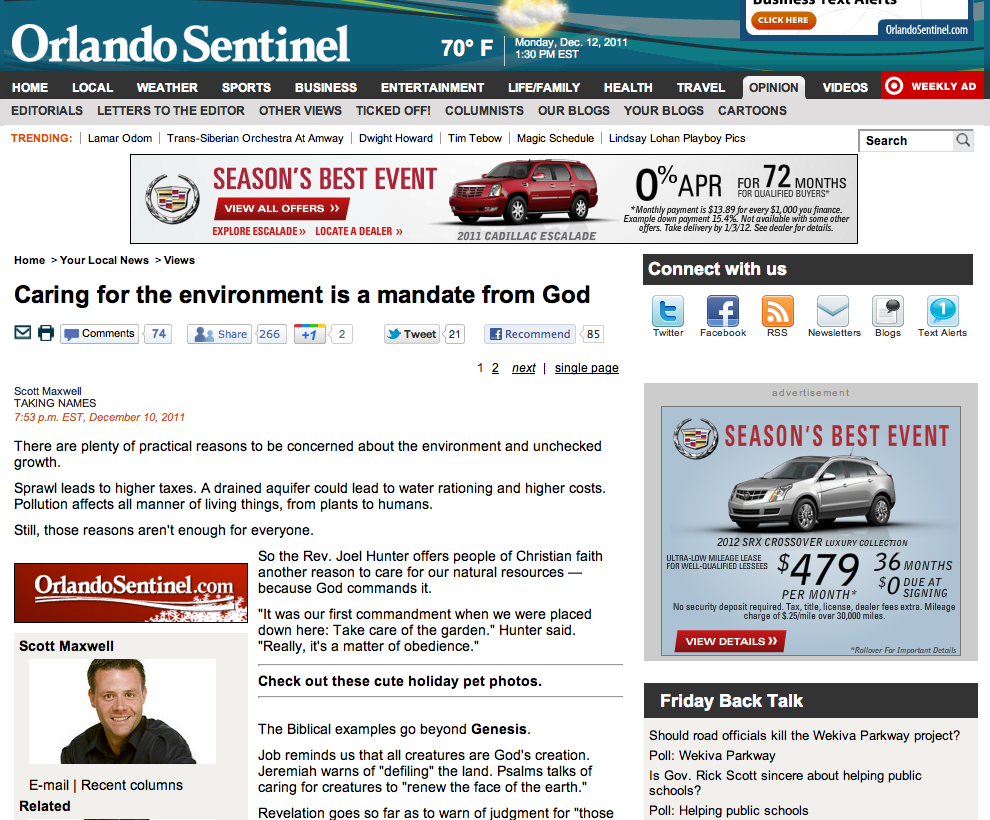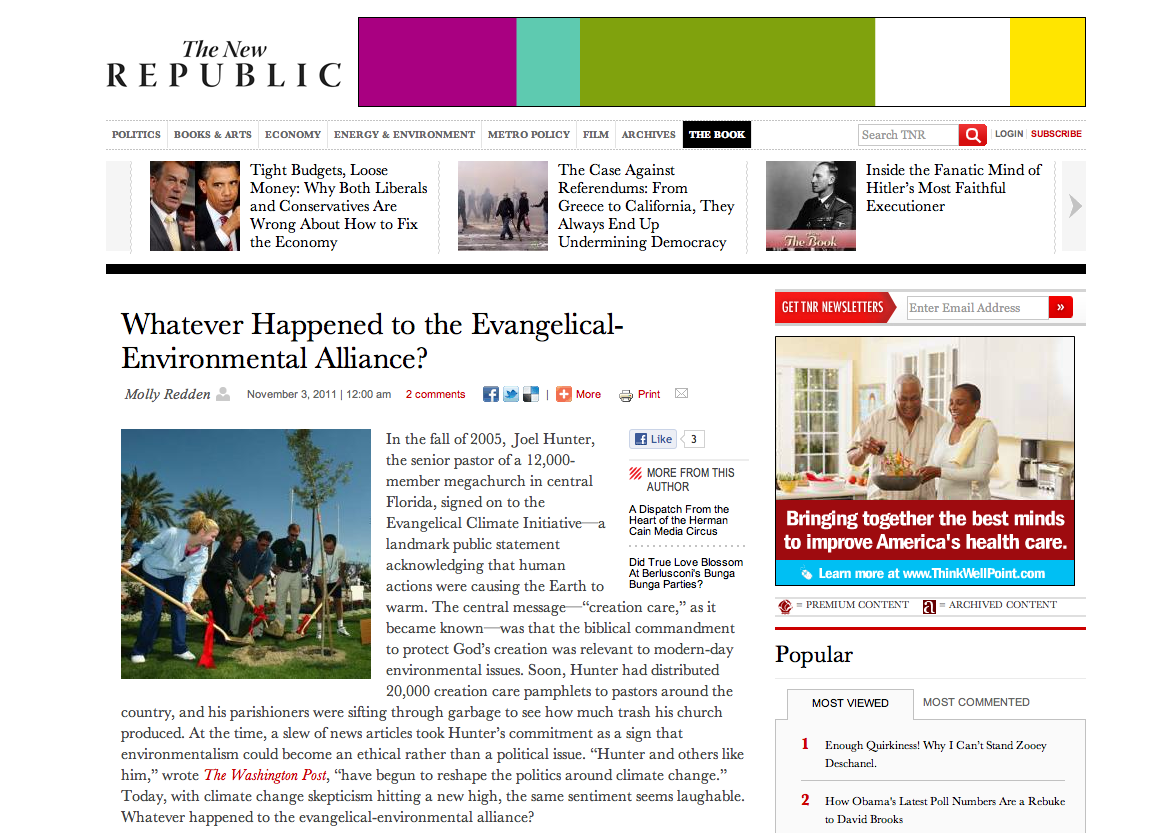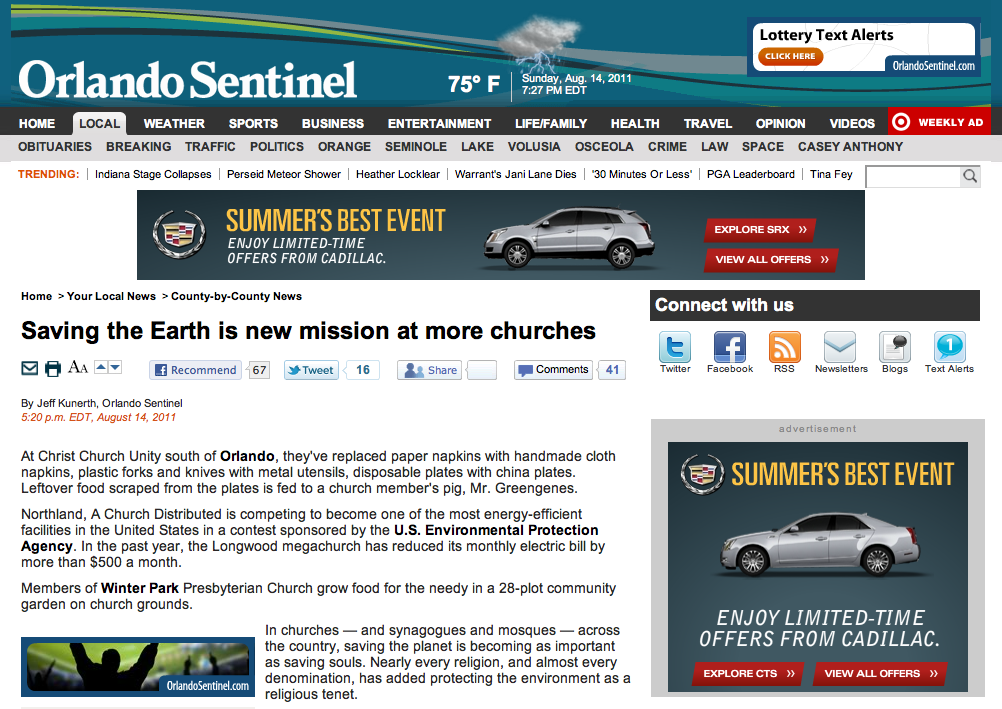Northland Film Builds Bridge Between Evangelicals and Environmentalists
SOURCE: Jeff Kunerth, Orlando Sentinel It's not easy turning an evangelical into an environmentalist.
But a new documentary from Northland, A Church Distributed aims to do just that by focusing on Scripture instead of science, faith instead of logic.
In "Our Father's World," Northland pastor Joel Hunter makes the argument to conservative Christians that saving energy, recycling waste and reducing your carbon footprint are all based on Scripture.
"The Bible provides a direct mandate to be caretakers of the garden," Hunter says in the documentary. "While creation still belongs to God, he has graciously entrusted it to our care and stewardship."
But the film also points out that evangelical Christians have abdicated the care of God's creation to the New Age and secular environmentalists. To become an evangelical environmentalist is to be associated with the tree-huggers, pagan nature worshippers and liberals.
"What has happened is the environmental movement has been generally championed by the liberal wing of the church, which appeals to logic and science," said Tony Campolo, a Pennsylvanian pastor who appears in the Northland film. "They make their case brilliantly, but they don't understand that evangelicals will not take seriously any case that is not based on the Bible."
In advocating for Bible-based environmentalism, Hunter gets pushback from both sides.
"We get shut out of the conversation with scientists because of our faith, but we also get a lot of flak from the fearful people in the religious community who think environmentalism is something pagan," Hunter said. "This is right where we want to be. If you aren't getting it from both sides, there's no need for a bridge."
Building a bridge of common ground between the faith and secular communities is starting to work, said the Rev. Andy Bell, executive director of Sunshine State Interfaith Power and Light, a St. Petersburg faith-based environmental group created in 2010.
"The secular environmentalists say, 'Welcome, we've been waiting for you guys,' '' said Bell, a United Methodist minister whose group includes Northland and 14 other Central Florida religious organizations.
It's a natural alliance because most people who care about saving the earth are spiritual, if not religious, said Frank Jackalone, senior organizing manager for the Sierra Club in St. Petersburg. The love of nature and the determination to prevent its destruction speak to the soul of mankind, he said.
"Most environmentalists see the protection of the planet as a spiritual expression no matter what their faith," Jackalone said.
What the evangelicals bring to the movement is more than just a spiritual love of nature, said Sister Patricia Siemen, a nun and environmental activist. It's a moral and ethical argument that comes with a religious conviction.
"Evangelical Christians bring a lot of passion and moral force to climate change," said Siemen, director of the Center for Earth Jurisprudence at Barry University School of Law in Orlando. "I think their leadership is very important. I hope they can go shoulder to shoulder with other environmentalists, whether spiritual or not."
In the documentary, Hunter makes the point that protecting the environment and saving Earth from destruction do not belong to one group or faith. He states that every major religion has tenets for taking care of Earth and all its living things.
"One of the things I love about living in this age is God is giving us problems so big no one faith community can really solve them," he said. "Therefore, we need to work together and we need to find common ground both with believers of other religions and with those who believe in no religion."
If faith leaders such as Hunter can marshal the legions of evangelicals to join the environmental movement, it could have a profound impact on climate change, Bell said.
"The game changer for climate change will be people of faith," he said. "The secular environmentalists were ahead of us because we dropped the ball. We let things get out of hand without raising the moral questions related to our ability to care for the Earth."
"Our Father's World" is available to view and download for free at ourfathersworldfilm.com.
jkunerth@tribune.com or 407-420-5392
What they believe
Evangelical environmentalists believe:
They will be held accountable by God if they harm or destroy the environment.
They are obligated by Scripture to be good stewards of Earth.
They are called by God to sacrifice, and conservation requires sacrifice.
They have a moral, ethical and religious responsibility to protect Earth.
Mankind does not own Earth, which belongs to God.
Sources: Our Father's World, Sentinel research
Copyright © 2013, Orlando Sentinel





